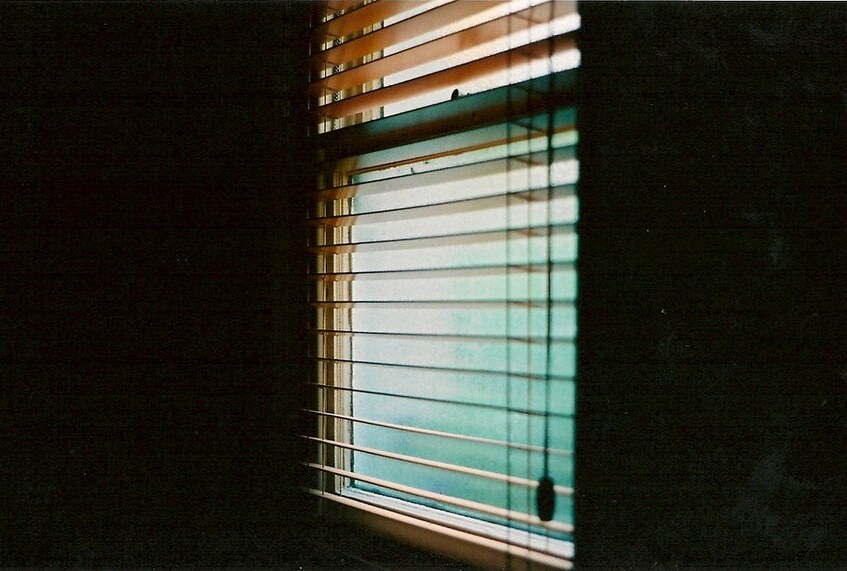|
4/3/2022 it was dark by E.B. Cotenord Jason Tessier CC it was dark It was dark. That’s the one detail I’m sure of about how I woke up. Was I in vomit or next to vomit? On the floor or on the mattress? The mattress was on the floor, too. I broke the bed in a blackout months earlier. Maybe during a one-night stand or maybe falling out of it--both? Who knows? It was dark though, for sure. And there was vomit, for sure. I’d been drunk for days three or ten or more. At this point, it didn’t matter. I’d been drunk for a good couple of years straight. I couldn’t tell you when I ate last. Or how long the vomit had been next to me. Or if the vomit came before or after the last time I ate. I couldn’t tell you what day it was. I last remembered waking up on the kitchen floor. That could have been yesterday or last week. And now, I am in my room. Near the floor. The light from my next-door neighbor’s house shining through the window behind me. The closet light might be on. It might not be. There’s enough light to make my way around the room with my hands to find my drink on the floor next to me. And the bottle next to it. A couple of bottles rolled under the dresser two feet from me. I’m not sure if they’re empty or if they rolled away before I finished them. If they’re not empty, I’ll get to them soon. If they are empty, I won’t. My husband will get them. My phone has dozens of missed calls and texts. A few texts have been answered, badly. Those texts would be embarrassing if they weren’t too incoherent to be anything but concerning. I don’t go back and read those texts. I will never go back and read those texts. I don’t remember them and I don’t need to. I do remember that Dad’s text came through that night. “How are you doing?” That’s an odd text for my dad to send. He checks on me, regularly, but not like that. Normally he asks how the kids are doing. Or he sends me an article or a funny video. He likes to ask me what the weather is like. He checks in with small talk. With simple messages that just tell me he’s thinking about me. But that night, I wasn’t in any shape to realize it, but the direct question meant he was concerned and it was urgent. The simplicity of the text, the soft tone, and the question itself, a question asked in a way that would tell him immediately whether or not I was even alive. It’s a question my dad would ask from his couch, eighteen miles from my bedroom. He sits in the corner of his couch, too. His is black and leather, but not to accommodate wine spills. My parents buy furniture for comfort. For function. They buy beautiful furniture they can relax on. And that their dogs can relax on. Comfortable couches for people and large dogs. And my dad sits in the corner because it’s next to the door, where he can let the dogs in and out and watch squirrels climb his bird feeder and he can be close to the feral cats who come up onto the deck to eat the food he puts out for them. The cats he traps to take to the vet to get neutered and have their health checked. My parents buy furniture to accommodate a home. My parents never bought furniture to accommodate dysfunction. The house I grew up in housed dysfunction. We battled loss and heartbreak and sickness and mental illness. My sister died in the street in front of it. But the house wasn’t a place that nurtured dysfunction. It was a house that offered comfortable couches, comfortable food, and comforting words, affection, and love. My childhood house was not a place where dysfunction thrived. It was a place where a family thrived despite the demons that should have torn us apart. My dad texted me from that house. To check on me in the house I was in now. The house with no comfortable furniture and no functional parents. No cats. No squirrels. No dogs. My house was dark. He asked how I was doing, but he knew the best he could hope for was bad. “I’m gonna be honest, Dad. Not good.” “Can we FaceTime?” I don’t remember if we did or if we didn’t. We talked on the phone, though. I just remember his voice. I probably didn’t FaceTime because I thought I’d get away with hiding my wine-stained lips from my dad. Sure I was thirty-eight and going back through my Instagram, it was doubtful anyone I knew would even recognize me without wine lips anymore, but I was still holding strong to the illusion that my dad didn’t know that I drank until I didn’t have to cope with sunlight or moonlight, depending on whatever light was shining at whatever hour I woke up. It didn’t matter. If it was light, I needed it to drown. I never have to see my dad’s face to see his face. I can see his face that night now, even though I couldn’t see it that night. Pale, terrified, and holding it together for his only living child. Years ago, he opened the front door to tell my sister to come back inside, that he was going to drive her to the store, that he didn’t want her to walk in the dark and in the rain. If he had just opened the door 10 seconds earlier, she would be alive. Instead, he opened the door to see her body, crumpled in a puddle on the street, bleeding in the headlights of an SUV. He wasn’t going to be 10 seconds late ever again. And I knew that every time he called me now, he was afraid he might be. I didn’t need to see his face to see his pain and fear. And he didn’t need to see my face to see the stain of wine on my lips. I wasn’t fooling anyone. You could see the lip stains in the slur of my speech. You could smell the dirt of my hair in the stumble of my footsteps and taste the booze on my breath in the thuds of my body falling against the bathroom walls. My dad spoke to me like I was an adult but reassured me like I was a child. “What’s going on? Talk to me, Elyse.” We don’t have heart-to-hearts. I sobbed. I want to say I was honest, but honesty is a thing for people who are alive. I wasn’t really that anymore. Even if I kind of was, I wasn’t alive in a world where reality existed with enough power to influence things like truth and honesty. There was pain, real and imagined, and there was sleep. There were nightmares to blur the distance between the two. And really, that was all that was left of me. I explained that to my dad or rather, it explained itself in whatever it was I said to my dad. “Elyse, you’re going through a really hard time right now.” He wasn’t wrong. I let him know I was sorry or ashamed or certain that I’d let him down or my mom down or both of them or probably everyone around me. “Elyse. Your mother and I love you very much.” I wasn’t buying it. It’s not that he was ever an unloving father. The opposite. I’ve never known anyone who loves anything with the stamina and determination that my father loves his family. That man is incapable of keeping his heart from churning love for us, no matter how brutal we’ve been with it, the part that loves me is eternal and unstoppable. It’s not something I can break. And I’ve done my best to try. I just couldn’t believe that I was still someone they could love. He loved me, but the me he loved no longer existed. She left my body a long time ago and was replaced with a thirty-eight-year-old woman who sleeps on kitchen floors with vomit in her hair. “Think about this. If you want to know how much your mother and I love you, just think about how much you love Bug.” Bug is my daughter. She was 5 at the time. To say I love her would not be fair. I am obsessed with how absolutely perfect she is in every way. She isn’t even human. Bug is magic in the body of an unstoppable force in the body of a little girl in the body of a miracle and she manages to all of that despite having me for a mother. To think anyone loved me that much. “We love you more than you love Bug.” That’s a strong statement, and he knows it. He knows I don’t believe him. “No, listen, how much you love Bug, that’s a lot. But you’ve only known her for less than 6 years. Your mom and I have known you for 38 years. We’ve had 32 more years to love you. We love you more than you love Bug.” The last thing I remember is the heat on my cheeks from tears. And then my life sort of fast-forwarding, skipping through days and weeks until I found myself once again in the hospital, but this time, I was ready to accept help. I’m sure Dad would be surprised that I remember that conversation. I know I am. Because I don’t remember anything else except that it was dark.  Chicago-based professional dream girl, E.B. Cotenord, is a sex worker, writer and the host of The eXXXistential Podcast. Her creative endeavors serve as explorations into her experiences navigating society as a current sex worker and recovering addict. E.B is a single mother raising a 14 year old boy and 12 year old non-binary child as well as 4 michievious rabbits. She seeks to help humanize marginalized communities by writing about her life as an adult entertainer and suburban mom in recovery. She can be found on Twitter @ebcotenord.
Gregg Johnson
3/30/2023 06:02:07 pm
As a recovering addict of 30 years I found your story as powerful as any I've ever heard or read. Though I've never met you please know I love you in every way. Comments are closed.
|
AuthorWrite something about yourself. No need to be fancy, just an overview. Archives
April 2024
Categories |

 RSS Feed
RSS Feed
